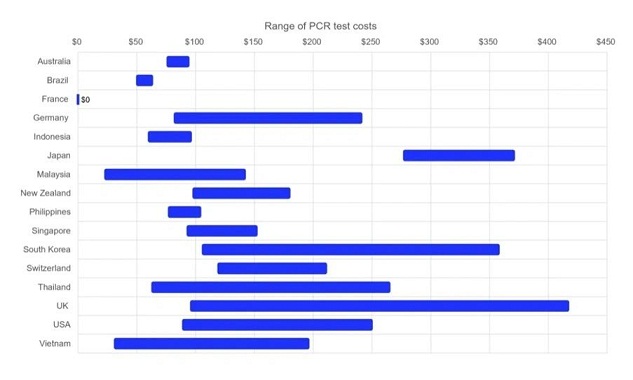A recent survey of 502 bank customers in Thailand from Momentive.ai (the research company of SurveyMonkey), commissioned by Cover Genius, sought to understand how customers of banks, neobanks and other fintech apps would react to embedded insurance offers based on real time transaction data. It asked the following: Suppose your bank, with your permission, monitored
A recent survey of 502 bank customers in Thailand from Momentive.ai (the research company of SurveyMonkey), commissioned by Cover Genius, sought to understand how customers of banks, neobanks and other fintech apps would react to embedded insurance offers based on real time transaction data. It asked the following:
Suppose your bank, with your permission, monitored your transactions and offered a prompt for purchasing protection products based on your purchase history inside of your banking app. Please indicate how interested you would be in allowing them to make these offers.
The findings show that 82% of Thai digital bank customers would be highly interested in receiving embedded insurance offers based on their transaction data, as would 72% of traditional bank customers. ‘Convenience’ is the primary driver for their interest, stated by 63%.
“The past two years have seen a greater acceleration of digitization than the previous twenty” said Arijit Chakraborty, Managing Director, APAC of Cover Genius. “Banks, Neobanks, and Financial Institutions are uniquely positioned to offer their customers hyper-relevant, transaction-based embedded insurance, and add value to the most important purchases their customers make, due to their long history and high level of trust with consumers.”
The research mirrors surveys of 3,551 Americans commissioned by Cover Genius published last month, and 12 other countries, which similarly examined 14 life events or activities or major purchases that lead to insurance consideration, such as childbirth, purchases of car, property, pets and expensive items, contracting for a wage and becoming a lessee or landlord. Across the globe, the data points to significant demand for timely and relevant transaction-based insurance offers, with dramatically higher preferences if they’ve recently had major purchases or life events, or if they used a traditional insurer in the last 12 months, or if they purchased insurance from their bank. The authors note the significant gap between an insurtech approach and the “bancassurance” reality, where traditional banks partner with traditional insurers for offerings that are typically divorced from underlying activities.
The survey of Thai customers also confirms that there’s broad support for bank-embedded offers for property insurance such as Renters, Homeowners and/or Landlords (52% of respondents are highly interested), health insurance (30%), life insurance (26%) and a range of warranties for high value personal and household items (52%).
The role and nature of traditional insurers as a “second step” in the buying process is also examined in the paper. Digital bankers and younger demographics are more likely to purchase insurance, however the data also points to a healthy future for banks as insurance distributors: 82% of Thai customers who chose a traditional insurer or broker in the last 12 months would prefer bank-embedded offers for next time.
While recent experience purchasing insurance is one way to identify early adopters, another is identifying users of popular fintech apps. The breakthrough findings show that 75% of customers who use mobile wallets, 77% of buy-now-pay-later users, 93% of investing account users, and 91% of accounting software users are highly interested in receiving insurance offers. Interest is also high for small business operators (72%).
“The clamour for seamless servicing has meant we’ve added partners like Shopee Thailand in transit and retail, several airlines and online travel agents, auto, gig economy and mobility companies like Ola, other fintechs like Intuit, and more”, Arijit Chakraborty adds.


